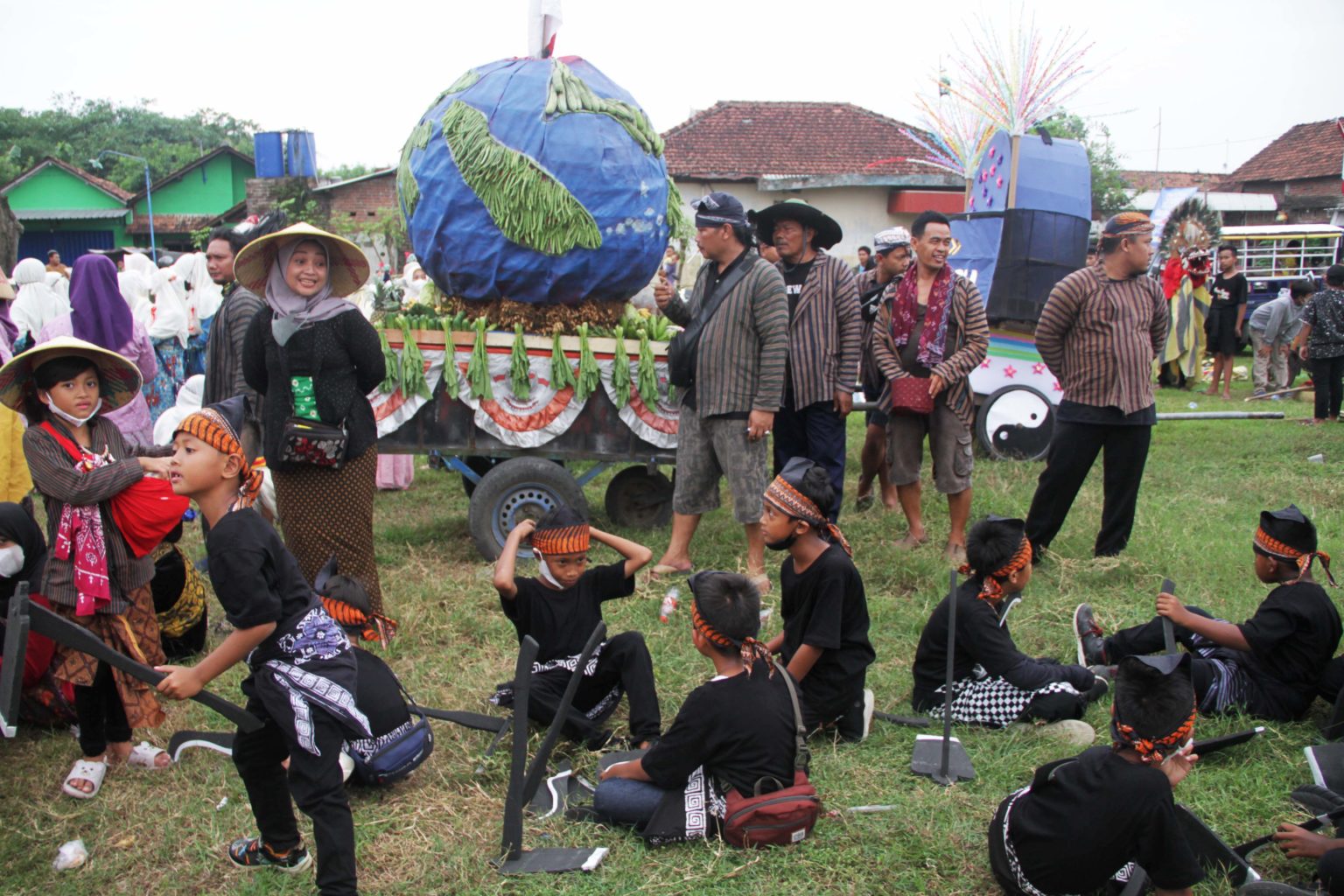Javanese culture is one of the many local cultures in Indonesia. As the name suggests, Javanese culture originates from the Javanese people. This culture has been shaped by various cultural assimilations and values throughout the social development of the Javanese community. It also includes influences from religious beliefs and values.
Javanese Culture
Background of Javanese Culture
Javanese culture is a tradition built by the Javanese people. It is a result of the historical legacy of major Javanese kingdoms, particularly Majapahit and Mataram Baru. Additionally, it has been influenced by Hindu-Buddhist and animist-dynamist beliefs. This has led to the formation of a Javanese philosophy that highly values harmony, balance, and equilibrium in life.
The formation of Javanese culture is based on respect for nature and fellow humans. This has resulted in Javanese culture having characteristics based on its geographical conditions. The close relationship between the community and nature has also led to the development of cosmological thoughts within the Javanese mindset, which in turn has given rise to various traditions or rituals related to honoring the natural environment they live in.
Furthermore, when Islam entered Java, the already deeply rooted Hindu-Buddhist influenced Javanese culture underwent a process of adaptation to incorporate Islamic customs, traditions, and values.
Dynamics of Javanese Culture
Javanese culture is believed to have existed before the Hindu-Buddhist era, with the development of animist-dynamist beliefs. With the arrival of Hinduism and Buddhism, Javanese culture adopted elements from these religions. Additionally, the influence of Islam added Islamic values to Javanese culture and traditions.
However, nowadays, Javanese traditions are rarely practiced. Only a few regions still hold ancestral traditions. It is undeniable that Javanese culture is beginning to fade. Gradually, the deeply rooted Javanese culture from ancient times is being affected by globalization.
Sedekah Bumi
Definition of sedekah bumi
Sedekah Bumi is a traditional ceremony involving the offering of agricultural produce from the community to nature as an expression of gratitude to the Creator. This tradition is practiced among farming communities in areas with strong agrarian elements. It involves holding a communal feast with the harvest from local agriculture. Typically, Sedekah Bumi is conducted before the planting season or at the end of the harvest season.
Background of the Sedekah Bumi Tradition
Sedekah Bumi, or offerings to the earth, originates from animist-dynamist beliefs and is performed as offerings to “guardians” or spirits, or even to gods and goddesses. After the influence of Hindu-Buddhist beliefs, this ritual was believed to create balance between humans and gods, humans and nature, and humans with each other.
With the arrival of Islam in Javanese culture, Javanese traditions transformed through the assimilation of various cultural influences. This led to the Sedekah Bumi tradition evolving from Hindu-Buddhist influences, where offerings were initially made to spirits, to a practice where offerings were given to humans.
The background of Sedekah Bumi is to express gratitude to God Almighty and to hope that farmers will have a better harvest in the upcoming planting season. It also serves to show gratitude to nature for its blessings. This practice reminds individuals not to forget the abundant life that nature provides. Humans, being at the top of the food chain, constantly exploit nature. If humans do not take care of and restore nature, it is humanity that will ultimately suffer.
The Process of the Sedekah Bumi Tradition
The Sedekah Bumi process is generally carried out before the planting season and at the end of the harvest season. This tradition is performed in a demonstration field, which is a model field owned by an individual but managed collectively. If the area does not have a demonstration field, the ritual can be performed in a strategically located field, such as one near a road, a field with wide embankments, or a field known for good harvests. Additionally, the village hall can be used for gatherings, and wayang purwa (traditional shadow puppet) performances are held, symbolizing that farmers must prepare for the upcoming planting season.
Following this, a religious ritual is conducted between two trees considered sacred by the local community. Afterward, a communal feast is held in the village square or hall, where agricultural produce is paraded and distributed to the residents, who can then enjoy the offerings.
Dynamics of the Sedekah Bumi Tradition
The origins of Sedekah Bumi lie in rituals performed by ancestors who believed in mystical matters. They made offerings or sacrifices from agricultural produce to supernatural beings they believed in, influenced by animist-dynamist beliefs. Today, Sedekah Bumi incorporates Islamic values due to the influence of Islam in Java by the Walisongo. With this influence, the concept of Sedekah Bumi, which was initially directed towards nature, is now given back to humans.
The Sedekah Bumi tradition has been passed down through generations and continues to be practiced today. However, with the reduction of agricultural land, the tradition of Sedekah Bumi is beginning to fade.
Values of Sedekah Bumi
Gratitude and Hope Gratitude for what the community has achieved through their hard work is marked by the harvest or catch they obtain. If not for God’s provision, then who else? Humans can only work hard, but the results are a gift from the Divine. Additionally, the community also offers prayers as a form of hope for the days ahead. This is so they can achieve better harvests or catches in the future. They hope that the Divine will grant them ease in obtaining sustenance. The lives of farmers and fishermen depend on nature. Therefore, they hope for favorable weather to support their livelihoods. Another hope is that nature remains in good condition. The community hopes that the nature that sustains life does not become damaged.
Pride in Our Own Traditions
Today, Sedekah Bumi is not only the heritage of communities with a strong agrarian culture but also belongs to everyone and is a treasure of the Indonesian nation. This tradition distinguishes Indonesia from other countries. It signifies that Indonesia has diverse traditions and cultures that contribute to society and the environment.
Social Responsibility and Love for Nature
Humans have a collective social responsibility to protect the environment and nature. Nature provides all our needs with the permission of the Almighty. It is only right for humans to participate in preserving nature, not just exploiting it recklessly. Humans must consider that future generations will also depend on nature. To ensure the continuity of human life, we must take care of nature.
Sedekah Bumi is a tradition that expresses gratitude for the gifts from nature. The balance in nature must be maintained; we should not wait for nature to restore its own balance. If this happens, humans may be left with only a small number of animals and plants until the earth recovers itself.


